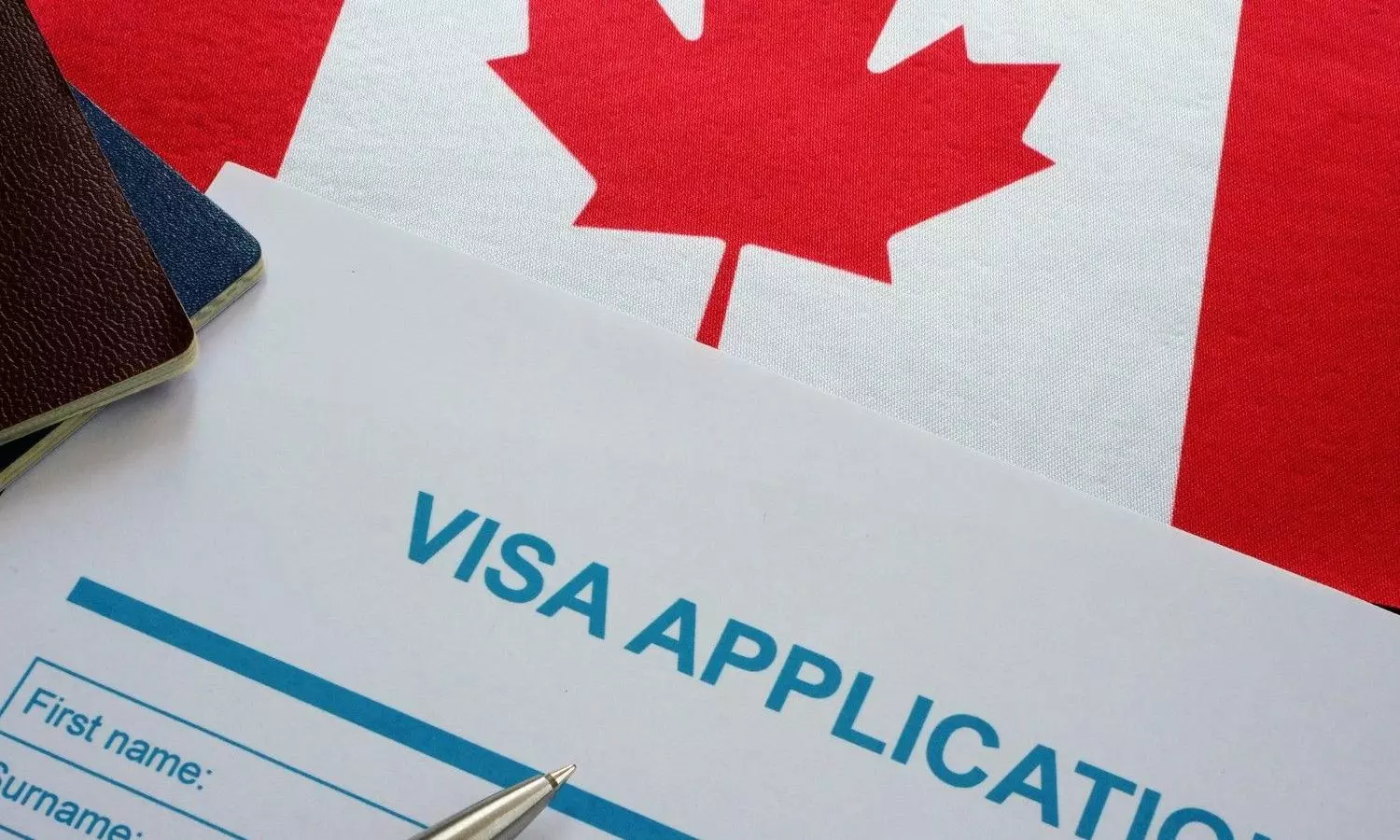
Canada cuts 2026 study permits; Indian students most affected
Canada will cap 2026 study permits at 408,000, with Indian students among the most affected as IRCC reduces international student intake and temporary residents

The international study permits issued by the Canadian government are likely to witness a significant seven per cent drop next year, with the number of permits being capped at 408,000 for 2026. This includes 155,000 visas for new arrivals and 253,000 extensions for current students. The data has been released by Immigration, Refugees and Citizenship Canada (IRCC), a department of the Government of Canada with responsibility for matters dealing with immigration.
“This number is 7 per cent lower than the 2025 issuance target of 437,000 and 16 per cent lower than the 2024 issuance target of 485,000,” stated the IRCC.
Indian nationals most affected
It further revealed that the new work permits issued under the Temporary Foreign Worker Program (TFWP) and International Mobility Program (IMP) are expected to reach 230,000 in 2026 before coming down to 220,000 in 2027 and 2028, reported NDTV.
Also Read: Three in four Indian student visas rejected in Canada: Report
The report further stated that Indian nationals remain the most affected group, as in 2024 they made up 20.8 per cent of TFWP entrants (39,790 people), 29.2 per cent of IMP entrants (209,505 people) and 36.5 per cent of study permit holders (188,465 people).
Temporary resident cuts increase
As per the 2025 plan, 673,650 temporary residents (367,750 workers and 305,900 students) were allowed, while the 2024 plan projected 516,600 temporary residents in 2026 and 543,600 in 2027.
“Further reductions are needed to meet our commitment of reducing the share of Canada's temporary population to below 5 per cent of the total population by the end of 2027,” stated the IRCC.
Also Read: What India can learn from China to retain talent or reverse brain drain
IRCC noted that further reductions will still be necessary to bring the temporary resident share of Canada’s population below the 5 per cent threshold the government has pledged to reach by the end of 2027.
Under the 2026 projections, total entries across both study and work streams are expected to fall to 385,000, followed by an additional decrease to 370,000 in 2027 and again in 2028.
Student intake target halved
The Canadian government’s updated immigration levels plan confirms significant cuts, close to 43 per cent, to temporary resident admissions, covering both international students and foreign workers. Earlier planning allowed for roughly 305,000 new international students each year, but the revised targets permit only 155,000 new student arrivals in 2026 and 150,000 in both 2027 and 2028.
Also Read: Indians feel unsafe in Canada, says new High Commissioner Dinesh Patnaik
IRCC stated that the cap introduced on study permits in 2024 has already slowed the pace of temporary population growth. According to the department, the number of study permit holders has decreased from more than 1 million at the beginning of 2024 to roughly 725,000 by September 2025. The cap will continue to restrict the volume of applications that can be processed, with a maximum of 408,000 study permits available under the 2026 allocation.
Graduate students to receive exemptions
Starting January 1, 2026, master’s and doctoral students enrolled at publicly recognised designated learning institutions (DLI) will no longer be required to obtain provincial or territorial attestation letters. IRCC stated that this exemption reflects the economic and innovation value of advanced graduate programs, and it plans to release a full list of participating DLIs soon.
Also Read: PM Modi seeks fresh momentum in India-Canada relations, meets Canadian FM
The exemption will also apply to students in kindergarten through Grade 12. It will extend to individuals who fall within certain federal priority or vulnerable categories. The same exemption will apply to current study permit holders who are renewing their permits at the same school and academic level.

